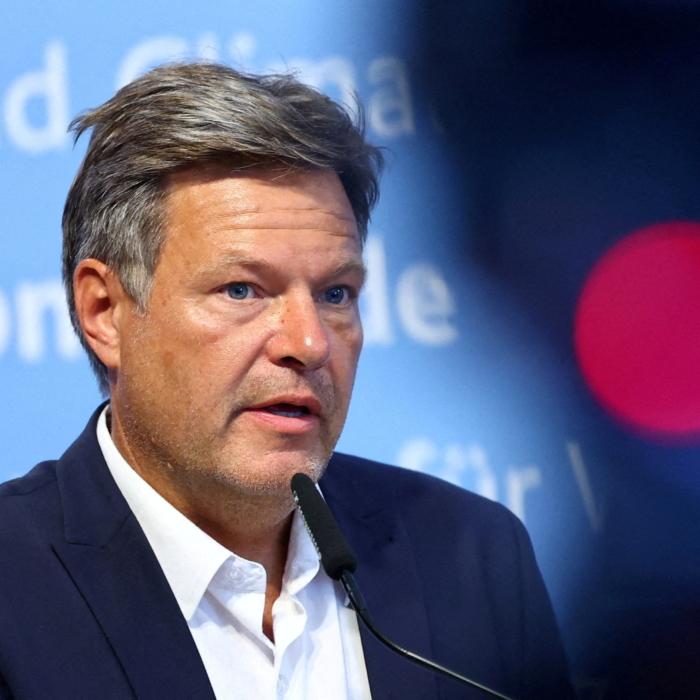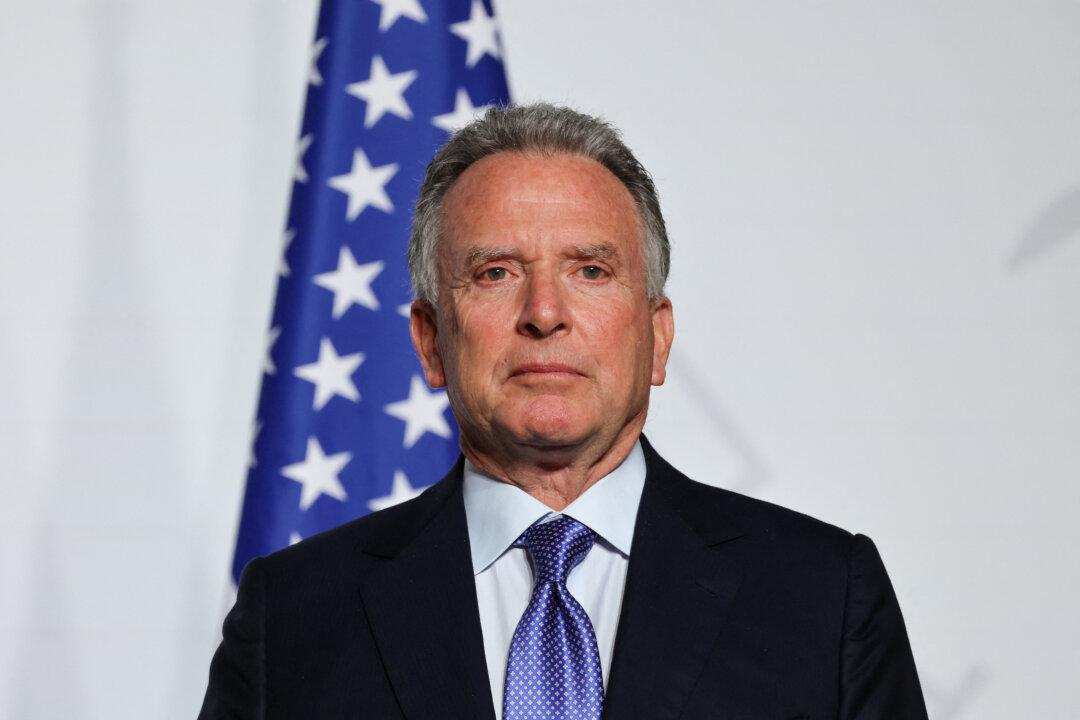The German Parliament was expected to vote on an opposition bill on Friday calling for tougher rules on immigration that could become the first legislation to pass thanks to backing from the Alternative für Deutschland (AfD) party.
However, moments before the debate was due to start at 11:00 a.m. local time, an adjournment was granted.
Legislators said current Chancellor Olaf Scholz’s Social Democrats (SDP), their coalition partners the Greens, and their former partners, the Free Democrats (FDP), were seeking to stop the vote from happening by referring it back to committees.
Opposition leader Friedrich Merz of the Christian Democratic Union (CDU) has put demands for more restrictions on immigration at the core of his campaign to win the Feb. 23 election since another fatal knife attack was carried out last week by a failed asylum-seeker.
However, his method of seeking these laws has sparked criticism from both within and outside his party for breaching the commitment from “mainstream” parties in the Bundestag to keep up a “firewall” against the AfD.
Merz insists his position is unchanged and that he has not and will not work with the party.
The FDP, which also supports tightening immigration rules, said it was seeking a way of getting the law passed without relying on the AfD.
“It depends entirely on the SPD and Greens to prepare the way for a democratic majority to pass this important law,” said senior FDP legislator Benjamin Duerr.
On Wednesday, Merz put a nonbinding motion to parliament calling for Germany to turn back many more migrants at its borders, saying that action was now needed, regardless of who backs them.
The measure just passed with the support of the AfD, a parliamentary first that drew a rare public scolding of Merz from his party’s former leader and former Chancellor Angela Merkel.
“I believe it is wrong,” Merkel said, referring to the outcome of the Wednesday vote, adding that what she called “democratic parties” should work together to prevent violent attacks like those recently seen in Magdeburg and Aschaffenburg.
On Friday, months-old legislation proposed by Merz’s center-right Union bloc that calls for an end to family reunions for immigrants with protection status that doesn’t amount to full asylum is scheduled to go to a vote.
The suggested laws would additionally give federal police increased powers to deport illegal immigrants.
The center-left coalition currently governing Germany has said it will reject the “influx limitation bill,” while a combination of opposition parties, including AfD, have stated they will vote in favor, and it remains far from certain what the outcome will be.
To pass, it would also need approval from parliament’s upper house, which represents Germany’s 16 state governments, and that still looks to be mathematically unlikely.
But the maneuver has added to a growing divide between Merz’s bloc, Scholz’s center-left Social Democrats, and their remaining coalition partner, the environmentalist Greens—parties with which he may need to form a governing coalition after the election.
Polls show Merz’s Union leading with around 30 percent support, while the AfD is second with about 20 percent, with the Social Democrats and Greens behind.
Center-left parties have accused Merz of breaking a political consensus to shun the AfD, which first entered the national parliament in 2017.
Scholz has suggested that Merz can no longer be trusted not to form a government with AfD, an accusation that Merz has rejected.
Merz insists that he has sought majorities in the political center; however, left-wing parties have disagreed, saying he stated there could be no compromises on his proposals.







